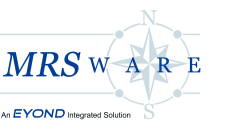We've been looking at a steep rise in ransomware -- the type of malware that infects computers and encrypts the user's personal documents, so that they cannot be accessed without first paying a ransom to the malware distributor. We've increased the scanning effectiveness and options around attachment files through the Spam Filter Portal to help combat these spammers. Even so, I am sure everyone knows at least one person that has opened that file attachment in and email and then realized that they should not have.
For those that have been infected by ransomware, or know someone who has, there is a new web site to help decrypt your files without requiring you to pay the ransom demand. The site is co-sponsored by Europol, the Dutch National Police, Kaspersky Lab, and Intel Security.
In addition to general information on ransomware, and how to avoid it, there are tools that can be downloaded to identify the version that is infecting a system and possibly decrypt files locked by some versions. Even if you have not been directly effected, it is an interesting site to look through, and make yourself aware of this increasingly common email threat:
https://www.nomoreransom.org/
In addition to what they say on the site, here is my own simple checklist to avoid and recover from loss of personal documents (whether malware related or just computer failure):
a. Don't open attachments from people you don't know. No one should be sending you a zip file anyways, but if they have pre-arranged to do so, make sure the contents don't have one of the executable file formats listed in our attachment blocking article.
b. Use a file sharing/storage/backup system that has version control (keeps multiple versions of your files, where you can open a previous version). This is a simple as dropping your personal files into your own folder in MRSware's File Share, which does version control by default.
For those that have been infected by ransomware, or know someone who has, there is a new web site to help decrypt your files without requiring you to pay the ransom demand. The site is co-sponsored by Europol, the Dutch National Police, Kaspersky Lab, and Intel Security.
In addition to general information on ransomware, and how to avoid it, there are tools that can be downloaded to identify the version that is infecting a system and possibly decrypt files locked by some versions. Even if you have not been directly effected, it is an interesting site to look through, and make yourself aware of this increasingly common email threat:
https://www.nomoreransom.org/
In addition to what they say on the site, here is my own simple checklist to avoid and recover from loss of personal documents (whether malware related or just computer failure):
a. Don't open attachments from people you don't know. No one should be sending you a zip file anyways, but if they have pre-arranged to do so, make sure the contents don't have one of the executable file formats listed in our attachment blocking article.
b. Use a file sharing/storage/backup system that has version control (keeps multiple versions of your files, where you can open a previous version). This is a simple as dropping your personal files into your own folder in MRSware's File Share, which does version control by default.

 RSS Feed
RSS Feed